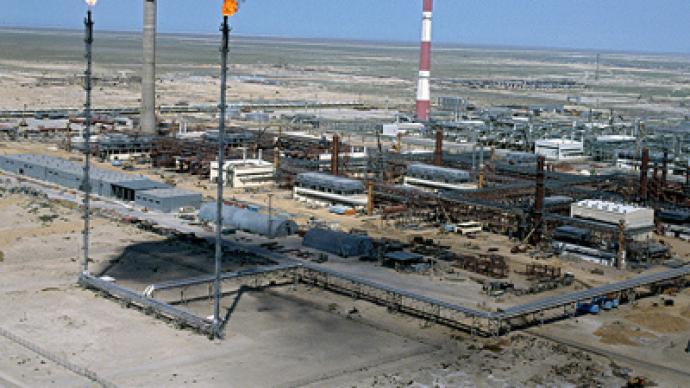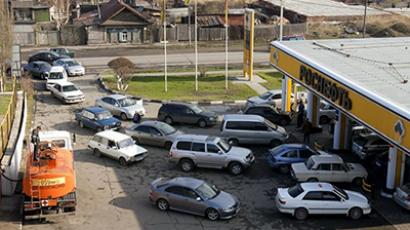IEA move to have minor long term impact

Oil prices dropped almost 5% on Thursday after the International Energy Agency announced it would release 60 million barrels of oil from reserves, but analysts say the long term impact will be minor.
According to Nobuo Tanaka, Executive Director at International Energy Agency (IEA), 28 IEA countries agreed to release 60 billion barrels out of 4.1 billion barrels of its total stock in the coming month to cover the shortage caused by unrest in Libya, as well as to provide for a seasonal increase in demand. According to the IEA estimates, about 132 mb of light, sweet crude oil was taken from the market due to Libyan conflicts by the end of May, which needed to be urgently addressed to avoid another collapse in fragile recovering economies.Talking to Business RT, Nick Parsons, head of research at National Australia Bank, said the IEA wanted to tackle inflation as well as to balance OPEC’s monopoly power.“There are two reasons. The first of these relates to the global economy and bearing in mind that central banks and governments around the world are fairly alarmed of the prospect of rising inflation, where oil prices are a major contributory factor, they certainly don’t want to drive their economies back into recession as a bite, over tightening interest rates to deal with inflation. So, working directly at the root cause of these price increases, I think, is a very shrewd move. So, the first reason is that because they are concerned with inflation, I think, the second reason is that they wanted to show that the balance of power across the world doesn’t lie entirely with OPEC. And, I think, that the OPEC decision that was taken 50 days ago not to increase production did actually upset a lot of people around the world. So, partly it’s about power, it’s also about inflation.”However, presidential aide Arkady Dvorkovich says the move won’t affect the market too much."This is nothing threatening. Prices are high. This decline is not dangerous. Greater openness is good for the market. The market will be more stable," he said.And Ivan Donchakov, an analyst from Investcafe, also says the impact on oil prices will be minor.“I think, that 60 million of barrels is extremely little on a worldwide scale. The world oil demand in 2011 will on average be at 88 million barrels round the clock, so I don’t think the IEA decision will stop the growth of oil prices for a long time. According to our forecasts, the average oil price in 2011 will be at $115/bbl, Brent.”













